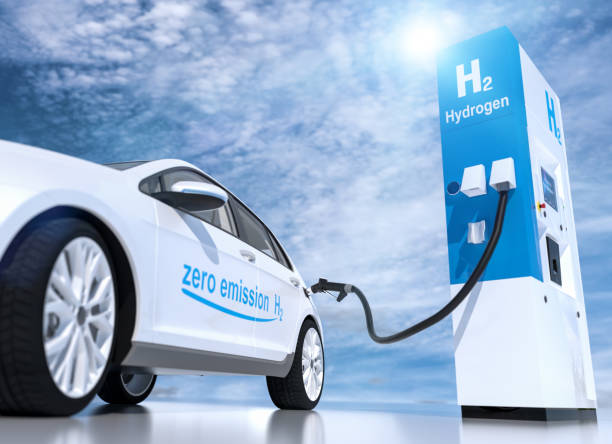The Resurgence of Hydrogen Fuel Cell Vehicles
In the ever-evolving landscape of automotive technology, a silent revolution is taking place. Hydrogen fuel cell vehicles, once relegated to the realm of science fiction, are making a powerful comeback. As the world grapples with environmental concerns and the need for sustainable transportation solutions, these innovative vehicles are emerging as a promising alternative to traditional combustion engines and battery-powered electric cars.

Throughout the latter half of the 20th century, various automakers experimented with hydrogen fuel cell technology, but high costs and infrastructure limitations hindered widespread adoption. The turn of the millennium saw renewed interest, with major manufacturers like Toyota, Honda, and Hyundai investing heavily in research and development.
How Hydrogen Fuel Cells Work
At the heart of a hydrogen fuel cell vehicle lies a complex yet elegant system. The fuel cell stack combines hydrogen from the vehicle’s tank with oxygen from the air to produce electricity through an electrochemical reaction. This process generates only water vapor as a byproduct, making it a zero-emission propulsion method.
The electricity produced by the fuel cell powers an electric motor, which drives the vehicle’s wheels. Unlike battery-electric vehicles, hydrogen fuel cell cars can be refueled in minutes, offering a range comparable to conventional gasoline-powered vehicles.
Advantages of Hydrogen Fuel Cell Vehicles
One of the most significant advantages of hydrogen fuel cell vehicles is their quick refueling time. While battery-electric vehicles may require hours to charge fully, a hydrogen fuel cell car can be refueled in about five minutes, providing a range of up to 400 miles on a single tank.
Additionally, hydrogen fuel cell vehicles produce zero tailpipe emissions, contributing to improved air quality in urban areas. The only byproduct of the fuel cell reaction is water vapor, making these vehicles an environmentally friendly option for eco-conscious consumers.
Hydrogen fuel cell technology also offers potential weight savings compared to battery-electric vehicles, especially in larger vehicles like buses and trucks. This advantage becomes particularly apparent in long-haul transportation, where the weight of large battery packs can significantly impact payload capacity.
Challenges and Hurdles
Despite their potential, hydrogen fuel cell vehicles face several challenges that have hindered widespread adoption. The most significant obstacle is the lack of infrastructure. As of 2023, there are only a handful of hydrogen fueling stations available in most countries, limiting the practicality of owning a hydrogen-powered vehicle.
Production and distribution of hydrogen also present challenges. While hydrogen is the most abundant element in the universe, producing it in a sustainable manner requires significant energy input. Currently, most hydrogen is produced using natural gas, which raises questions about the overall environmental impact of the technology.
Cost remains another barrier to adoption. Hydrogen fuel cell vehicles are currently more expensive to produce than their battery-electric counterparts, leading to higher prices for consumers. However, as technology improves and production scales up, these costs are expected to decrease.
The Future of Hydrogen Fuel Cell Vehicles
Despite the challenges, many automotive industry experts believe that hydrogen fuel cell technology will play a crucial role in the future of transportation. As governments worldwide implement stricter emissions regulations, automakers are increasingly investing in alternative propulsion technologies.
Several major automakers, including Toyota, Hyundai, and BMW, have reaffirmed their commitment to hydrogen fuel cell technology. These companies are not only developing passenger vehicles but also exploring applications in commercial trucking, where the quick refueling times and long range of hydrogen fuel cells could provide significant advantages.
Advancements in hydrogen production methods, such as electrolysis powered by renewable energy sources, are also making the technology more sustainable. This green hydrogen production could address concerns about the environmental impact of hydrogen fuel cell vehicles, making them a truly zero-emission option from well to wheel.
A Complementary Solution
As the automotive industry continues to evolve, it’s becoming clear that there may not be a one-size-fits-all solution to sustainable transportation. While battery-electric vehicles have gained significant traction in recent years, hydrogen fuel cell technology offers unique advantages that make it a compelling option for certain applications.
The future of automotive propulsion is likely to be diverse, with different technologies coexisting to meet various needs. Hydrogen fuel cell vehicles, with their quick refueling times, long range, and zero emissions, have the potential to play a crucial role in this ecosystem, particularly in sectors like long-haul trucking and public transportation.
As research and development continue, and infrastructure expands, we may see hydrogen fuel cell vehicles becoming an increasingly common sight on our roads. This resurgence of interest in hydrogen technology serves as a reminder that innovation in the automotive industry is far from over, and the quest for sustainable transportation solutions continues to drive progress and spark imagination.




